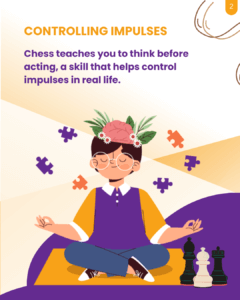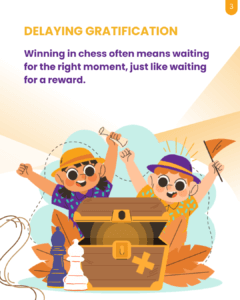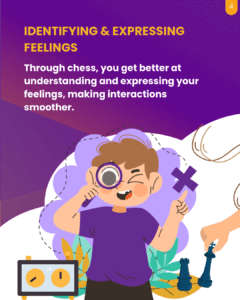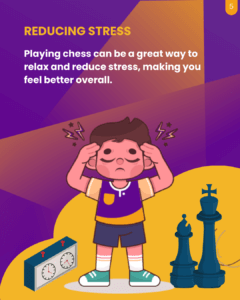Dear Parents! At MindMentorz, we believe in nurturing life skills through the timeless game of chess.
Let’s dive into how chess can shape your child’s social and emotional intelligence.
Building Life Skills Through Chess:
In today’s fast-paced world, parents are constantly seeking ways to equip their children with essential life skills. Chess stands out as a powerful tool to develop these skills, enhancing interaction and interpersonal abilities.
Chess transcends barriers of background, socio-economic status, and language. It teaches that regardless of our differences, our minds can work similarly when striving towards a goal.
Imagine kids playing a game of tug-of-war, pulling together in unity. Chess fosters a similar sense of camaraderie. Even if children are hesitant to share their struggles and feelings, playing chess establishes a non-threatening rapport, making it easier for them to open up.
Social Skills and Emotional Intelligence:

Daniel Goleman, in his seminal work Emotional Intelligence (1995), emphasized that success in today’s society hinges not just on intellectual prowess but also on social and emotional competence. Chess is a wonderful medium to develop these competencies.
Learn to Plan:

Chess teaches children to manage their emotions during gameplay. Whether they are winning or losing, they learn to stay calm and composed.
Controlling Impulses:

The game emphasizes the importance of thinking before acting. Rushing a move can jeopardize their position, mirroring real-life scenarios where impulsive decisions can have negative consequences.
Delaying Gratification:

Patience is a virtue in chess. Sometimes, it’s strategic to wait before capturing an opponent’s piece, teaching children the value of delayed gratification.
Identifying and Expressing Feelings:

Chess provides a platform to discuss and understand emotions. For example, after making a mistake, children can express their frustration and learn to move past it.
Reducing Stress:

Learning to control and reduce stress is crucial in both chess and life. The game helps children practice staying calm under pressure.
As a pioneer Chess Academy, we are passionate about using chess to develop these vital life skills. By embracing the power of chess, we can help our young minds flourish, preparing them to face future challenges with confidence and grace.
So dear parents, comment your experiences if chess has helped your child in any way.
WhatsApp Us